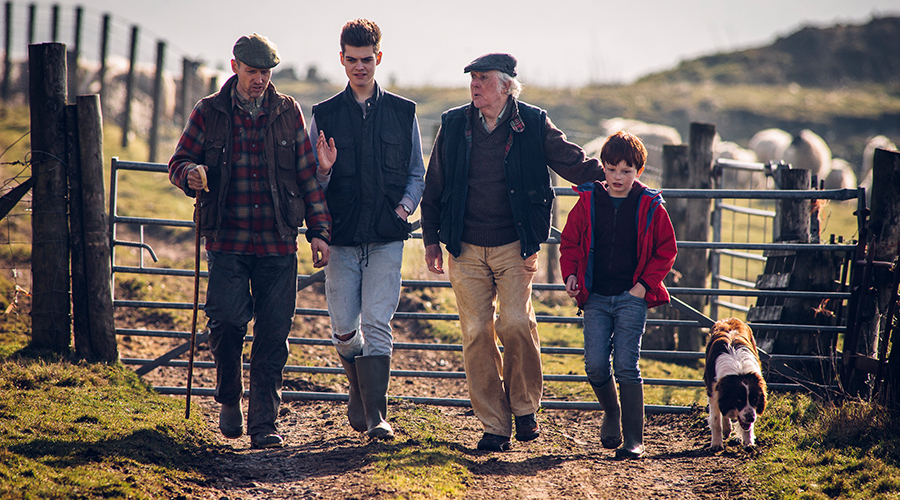

The government’s Autumn Budget brought unexpected change to the farming community, with an announcement that full Agricultural Relief (AR) and Business Relief (BR) for Inheritance Tax (IHT) would be capped at a combined £1 million.
The proposals, due to come into effect from 6 April 2026, will affect an estimated 75% of commercial family farms, according to research from the NFU.
The impact of these proposals is anticipated to hit farming families hard, with the NFU estimating that the majority of those farms would not be able to afford large IHT payments, even if staged over ten years, without selling off pieces of their land or business.
As a result, farmers may wish to consider the benefits of early gifting and transfers to family, in a bid to keep the farm alive and to ensure generational survival of their most prized asset and livelihood.
Early advice is essential to start the IHT clock running on any gifts and transfers, since no tax is due on any gifts you give if you live for seven years after giving them, unless the gift is part of a trust. Earlier advice also means that effective IHT planning can be undertaken at a time when the donors of the gifts have sufficient mental capacity to understand and make those transfers. However, what options are available when the farming family patriarch or matriarch lacks the mental capacity to engage in IHT planning themselves?
Authorised agents
An incapacitated individual may be able to make gifts and undertake IHT planning if they have a person appointed to support them with those decisions. This could be an attorney acting under a Lasting Power of Attorney (LPA) or a deputy appointed by the Court of Protection.
Whilst this includes decisions around gifting, there are restrictions on the powers of the attorney or deputy to make gifts, and guidance is contained within section 12 of the Mental Capacity Act 2005 (MCA).
Under the MCA, an attorney under an LPA or a deputy is able to make gifts:
- Only on customary occasions, such as birthdays, weddings and religious festivals
- To a person or charity supported by, related or connected to the individuals they act for
- Which are reasonable in value and proportionate to the size of the individual’s estate.
These gifting powers are, however, unlikely to extend to land and property, so do little to support the current IHT issue for the farming community. For gifts outside of the usual powers above, the authorised agent would need to apply to the Court of Protection for authority to make the gift.
Court of Protection – gifting applications
When approaching a gifting application to the Court of Protection, an applicant deputy or attorney will need to consider a number of evidential matters, including:
- The best interests of the individual concerned
- Their past and present wishes, thoughts and feelings
- Whether the gift or transfer is affordable and allows the individual’s ongoing needs to continue to be met.
It can be tricky to justify whether the proposed application is in the best interests of the individual the application is about, since the individual themselves will not benefit from the IHT planning as its outcome takes place after their death.
Convincing a judge that the application’s purpose (i.e. to reduce IHT) serves the individual’s best interests can be a difficult hurdle to clear, although tax mitigation is a consideration within the wider application.
As well as considering the individual’s best interests, the Court of Protection will also consider the individual’s values, attitude and feelings towards those receiving the gifts, tax planning and gifting generally. A history of making substantial gifts or of seeking to mitigate the tax position will therefore be an advantage when it comes to this type of application.
In Re MJL [2019], MJL had an estate of over £17 million and his care funding was paid entirely by the NHS.
His sibling sought authority to gift £1.2 million, being a gift out of historic surplus income, as well as a charitable gift of £789,591 and ongoing gifts out of surplus income for IHT purposes. Whilst some gifting was authorised, the application was challenged by the Official Solicitor on the basis of MJL’s lack of enthusiasm for tax planning prior to losing capacity, as well as a lack of historic gifting.
In contrast, the earlier case of PBC v JMA [2018] saw the court approve substantial gifts of £7 million out of an estate worth £18 million. This was predominantly due to JMA’s history of gifting and because it found tax planning to be consistent with JMA’s previous actions and beliefs.
The judge commented that ‘…it is no part of the Court of Protection’s function to protect either an inheritance or a revenue stream. Inheritance tax mitigating effect can in my view only meaningfully be considered in the best interests balancing exercise as a mechanism which either supports or goes against the particular individual’s wishes and feelings, values and beliefs about gifting and tax planning.’
Seeking advice on preserving wealth and early IHT mitigation advice is therefore key, not only so that you know what your options are now, but to ensure that your approach to these matters is evidenced and crystallised, should you lose capacity at some future point in time.
Hope for the family farm
In the context of the family farm and changing IHT rules, there may now be more opportunity to approach the Court of Protection to authorise gifts and trust creation. Whilst yet to be tested, there is a bigger argument for gifting the farm when it comes not only to IHT mitigation, but to preservation of the family business, which may have existed for many generations.
The upcoming changes to rules around reliefs for farming businesses may also see judges take a more open-minded approach to the question of whether an incapacitated farmer cared about tax mitigation and advice. If capacity was lost prior to the 2024 Autumn Budget announcement, IHT may well not have been an issue which required advice and planning, and judges may be minded to take a sympathetic view in those circumstances.
The outcome of such an application remains to be seen, but what we can advise is that prevention is better than cure. If you have concerns about the preservation of the family farm, advice is better received sooner rather than later.
Nexus Magazine
Read the latest edition of Nexus here
Related articles


